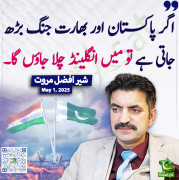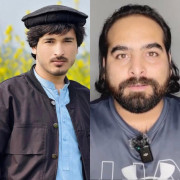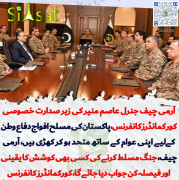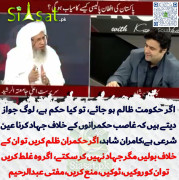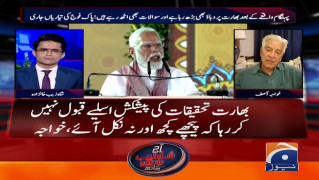[h=1]Warith Deen Mohammed[/h][TABLE="class: infobox vcard"]
[TR]
[TD="colspan: 2, align: center"]

[/TD]
[/TR]
[TR]
[TH="bgcolor: lavender, colspan: 2, align: center"]Leader of the
Nation of Islam[/TH]
[/TR]
[TR]
[TD="colspan: 2, align: center"]
In office
February 26, 1975 – 1976[/TD]
[/TR]
[TR]
[TH="align: left"]Preceded by[/TH]
[TD]
Elijah Muhammad[/TD]
[/TR]
[TR]
[TH="bgcolor: lavender, colspan: 2, align: center"]Leader of the
American Society of Muslims[/TH]
[/TR]
[TR]
[TD="colspan: 2, align: center"]
In office
1976 – August 31, 2003[/TD]
[/TR]
[TR]
[TH="bgcolor: lavender, colspan: 2, align: center"]Director of
The Mosque Cares[/TH]
[/TR]
[TR]
[TD="colspan: 2, align: center"]
In office
2003 – September 9, 2008[/TD]
[/TR]
[TR]
[TH="align: left"]Succeeded by[/TH]
[TD]Wallace D. Mohammed II[/TD]
[/TR]
[TR]
[TH="bgcolor: lavender, colspan: 2, align: center"]Personal details[/TH]
[/TR]
[TR]
[TH="align: left"]Born[/TH]
[TD]Wallace Delaney Muhammad
October 30, 1933
Hamtramck,
Michigan,
U.S.[/TD]
[/TR]
[TR]
[TH="align: left"]Died[/TH]
[TD]September 9, 2008
(aged 74)
Chicago,
Illinois, U.S.[/TD]
[/TR]
[TR]
[TH="align: left"]Resting place[/TH]
[TD="class: label"]
Mount Glenwood Cemetery,
Thornton, Illinois, U.S.[/TD]
[/TR]
[TR]
[TH="align: left"]Nationality[/TH]
[TD]American[/TD]
[/TR]
[TR]
[TH="align: left"]Spouse(s)[/TH]
[TD]Shirley Muhammad
Khadijah Siddeeq-Mohammed[/TD]
[/TR]
[TR]
[TH="align: left"]Relations[/TH]
[TD]Dr.
Akbar Muhammad, PHD,
Jabir Herbert Muhammad[/TD]
[/TR]
[TR]
[TH="align: left"]
Alma mater[/TH]
[TD]
Muhammad University of Islam[/TD]
[/TR]
[TR]
[TH="align: left"]Occupation[/TH]
[TD]
Imam, Religious Reformer, Muslim Scholar, Businessman[/TD]
[/TR]
[TR]
[TH="align: left"]Religion
[/TH]
[TD]
Sunni Islam
[/TD]
[/TR]
[/TABLE]
[h=3]Early life and education[/h] Mohammed was born Wallace Delaney Muhammad on Yeman Street in
Hamtramck, Michigan in 1933.[SUP]
[5][/SUP][SUP]
[11][/SUP] (In 1980 he would change his name to Warithuddin Muhammad, Warith Deen Muhammad, which translates to 'Inheritor of the Religion of Muhammad'.[SUP]
[3][/SUP][SUP]
[12][/SUP]) His parents were
Clara and
Elijah Muhammad, both highly active in the
Nation of Islam (NOI), the organization that preached a form of
Black nationalism and its own version of Islam.[SUP]
[13][/SUP] From 1934 until his death in 1975, Elijah Muhammad led the Nation.[SUP]
[14][/SUP]
Named to honor
Wallace Fard Muhammad (Fard), the founder of the Nation of Islam, Mohammed grew up in Chicago, one of seven siblings.[SUP]
[15][/SUP] His early education came from the
Muhammad University of Islam school system now known as the
Clara Muhammad Schools, or Muhammad Schools.[SUP]
[16][/SUP] He studied Arabic as a youth under Professor Jamal Diab, a Palestinian who had been hired by his father to teach at the M.U.I. in Chicago.[SUP]
[17][/SUP]
Mohammed became a minister under his father in late 1958 and served in
Philadelphia during the late 1950s and early 1960s.[SUP]
[5][/SUP][SUP]
[18][/SUP][SUP]
[19][/SUP]
In 1961, on his 28th birthday, Mohammed began a term in federal prison for having refused induction into the United States military. He could have served community service, but his father pressed him to accept the jail time.[SUP]
[5][/SUP] He spent most of that time studying the
Qur'an, the
scripture of
Islam.[SUP]
[20][/SUP] He became convinced that the Nation of Islam had to change. In 1963 he was released from prison.[SUP]
[21][/SUP][SUP]
[22][/SUP] Close to
Malcolm X, who was also questioning the NOI, he found that by this time his viewpoints deviated significantly from those of his father, whom he no longer believed was a prophet.[SUP]
[5][/SUP][SUP]
[23][/SUP] Because of this conclusion, he was excommunicated five times, but by 1974, he was returned permanently to NOI.[SUP]
[5][/SUP]
[h=2]Religious leadership and Ministry[/h] [h=3]Reforming the Nation of Islam[/h] Upon the death of his father on February 25, 1975, Mohammed was unanimously chosen as the leader of the Nation of Islam and introduced to the NOI membership as such at the annual
Saviours' Day convention on February 26, 1975.[SUP]
[2][/SUP][SUP]
[24][/SUP][SUP]
[25][/SUP] Among the first changes Mohammed instituted, he dropped the title Supreme Minister and took the title Chief
Imam, or simply Imam, in 1976.[SUP]
[26][/SUP][SUP]
[27][/SUP] The same year, he unveiled a new flag for the NOI community.[SUP]
[28][/SUP][SUP]
[29][/SUP]
These were just two of the many reforms Mohammed introduced.[SUP]
[3][/SUP] Among others, he eliminated the NOI dress code, disbanded the military branch of the NOI, clarified the concept of the devil, and, through his
Muhammad Speaks newspaper and public speeches, introduced and explained Islam's
Five Pillars.[SUP]
[5][/SUP][SUP]
[25][/SUP][SUP]
[30][/SUP] He stated that Fard was not divine and that his father was not a prophet.[SUP]
[23][/SUP] All of the over 400 temples were converted into traditional Islamic
Mosques. He also renamed the community several times before finally settling on the
American Society of Muslims to reflect the new thinking.[SUP]
[22][/SUP][SUP]
[31][/SUP] Mohammed was frank about his intentions to evolve the movement. On November 19, 1978 he spoke on the "Evolution of the Nation of Islam" at the American academy of Religion in
New Orleans, Louisiana.[SUP]
[32][/SUP]
Mohammed's changes reached deep into the philosophy of the movement his father had led for so long. He rejected literal interpretations of his father's theology and Black-separatist views and on the basis of his intensive independent study of Islamic law, history, and theology, he accepted whites as fellow worshipers.[SUP]
[33][/SUP][SUP]
[34][/SUP] However, he also encouraged
African Americans (Bilalians) to separate themselves from their pasts, in 1976 calling upon them to change their
surnames which were often given to their ancestors by slave masters.[SUP]
[12][/SUP][SUP]
[35][/SUP] He forged closer ties with mainstream Muslim communities, including
Latinos.[SUP]
[36][/SUP] He also decentralized power. On September 10, 1978 in an address in
Atlanta, Georgia he resigned as Chief Imam and appointed a six-member council to lead the Community.[SUP]
[37][/SUP][SUP]
[38][/SUP]
Mohammed felt quite keenly his role in reform. In an interview published in the
Muhammad Speaks newspaper and conducted by his brother
Jabir Herbert Muhammad, Mohammed described his role as successor to their father as that of a
Mujeddid,[SUP]
[39][/SUP] one who would watch over the new Islam or community.[SUP]
[40][/SUP][SUP]
[41][/SUP] In 1979 he used the title Mujeddid (Mujaddid) on his byline in his weekly articles for the
Bilalian News (the new titles of
Muhammad Speaks).[SUP]
[42][/SUP]
Warith Deen Mohammed gained widespread support among the international Muslim community, but his changes to the Nation of Islam were not universally accepted.[SUP]
[43][/SUP] A number of dissident groups resisted, most notably those who followed
Louis Farrakhan in breaking ranks with Mohammed. This group revived the name 'Nation of Islam' in 1977.[SUP]
[23][/SUP][SUP]
[44][/SUP] In 1995 Mohammed released a statement expressing concern about Farrakhan's motivations and the racial divisiveness of his ministry.[SUP]
[40][/SUP][SUP]
[43][/SUP] The pair embraced publicly and declared reconciliation at the annual
Saviours' Day convention on February 25, 2000, but in August 10, 2007, Mohammed repeated his frustration with the separatist stance of the current Nation of Islam, stating that its leaders had, "for the last 10 years or more,...just been selling wolf tickets to the white race and having fun while they collect money and have fancy lifestyles."[SUP]
[45][/SUP] He predicted a quiet evolution in the NOI towards unity with the mainstream American Muslim community.
[h=3]Building ties within the Muslim community[/h] Mohammed was intent on strengthening bonds between his movement and the wider American Muslim faith as well as with followers of Islam abroad. It was his goal to align American Muslims with
Sunni Islam.[SUP]
[15][/SUP] In 1976, he took a delegation to
Guyana on an official
State Visit to meet with Prime Minister L.
Forbes Burnham, and the then President of Guyana
Arthur Chung, during which he forged ties with the Muslim communities in the region.[SUP]
[46][/SUP] In 1985, he met in
Geneva,
Switzerland with Dr. Muhammad Ahmad Al-Sharif, Secretary General of the
Islamic Call Society of
Libya and Dr. Abdul Hakim Tabibi, an
Afghan mujahid, to discuss areas of future cooperation with the
Islamic Call Society and the Muslim Community of America.[SUP]
[47][/SUP] He hosted
Grand Mufti Abdullah Mukhtar, the leader of an estimated 60 million Muslims at
Masjid Bilal, during his first visit to the U.S. in 1994.[SUP]
[48][/SUP] In 1999, he was elected to the
Islamic Society of North America's
Shura Board.[SUP]
[49][/SUP] That same year, during
Ramadan, he pledged to work with then Grand Mufti of Syria, Shaikh
Ahmed Kuftaro an-Naqshbandi(raa) for the advancement of Al-Islam during a meeting with Kuftaro and Shaikh Nazim al-Haqqanian-
Naqshbandi.[SUP]
[50][/SUP][SUP]
[51][/SUP] He was the special invited guest and keynote speaker at the "Inaugural Conference on the Growth and Development of Islam in America", held at Harvard University on March 3–4, 2000.[SUP]
[52][/SUP]
[h=3]Interfaith cooperation[/h] Just as Mohammed sought to be racially inclusive, he also focused on cooperation between multiple faiths. On May 23, 1976, he conducted a massive interfaith Spiritual Life Jubilee in Los Angeles, California and spoke on the subject "A New Heaven and a New Earth".[SUP]
[53][/SUP] In 1977 he participated in a Muslim-Christian dialogue in
Fort Worth, Texas with Dr. Jack Evans, then President of
Southwestern Christian College in
Terrell, Texas.[SUP]
[54][/SUP] In February 1978, he gave a historic address before more than 1,000
Jews and
Muslims at the
Washington Hebrew Congregation in
Washington, D.C., then under the leadership of
Rabbi Joshua O. Haberman.[SUP]
[55][/SUP]
This was a focus that would persist throughout his career. In 1993 he spoke at the Interfaith Roundtable National Conference of Christians, Jews and Muslims in Detroit, Michigan.[SUP]
[47][/SUP] In March 1995 he gave the keynote address at the Muslim-Jewish Convocation in Glencoe, Illinois.[SUP]
[56][/SUP] From October 1–6, 1996 he met with
Pope John Paul II and Cardinal
Francis Arinze at the
Vatican in
Rome.[SUP]
[57][/SUP] On August 17, 1997 he was presented the Luminosa Award for Unity from the
Focolare Movement.[SUP]
[58][/SUP] On September 9, 1997 he addressed the
Baltimore Jewish Council speaking on themes of world-wide justice and fairness.[SUP]
[59][/SUP] On May 18–20, 1998, he attended the Conference on Religion and Peace sponsored by the Center for Christian, Jewish Understanding of
Sacred Heart University in Auschwitz,
Poland.[SUP]
[56][/SUP] In June 1998 he addressed the Muslim Friends of the Focolare conference in Rome, Italy,[SUP]
[60][/SUP] in October of the following year, along with a 92-member delegation, he spoke before a gathering of 100,000 people in the
Vatican.[SUP]
[61][/SUP][SUP]
[62][/SUP] Pope John Paul II and the
Dalai Lama were both in attendance.[SUP]
[63][/SUP] On October 29, 2001, Mohammed participated in an "Evening of Religious Solidarity" joined by
Minister Louis Farrakhan,
Reverend Robert H. Schuller, and members of the
Parliament of World Religions at The Islamic Foundation in
Villa Park, Illinois.[SUP]
[64]
[url]http://en.wikipedia.org/wiki/Warith_Deen_Mohammed
[/URL][/SUP]


